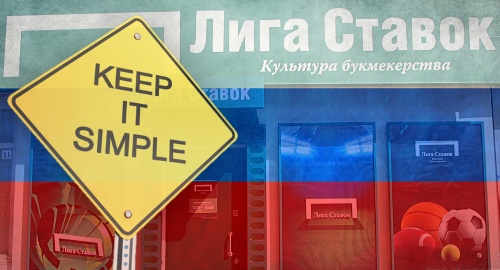 Russia’s government is helping bookmakers by simplifying the cumbersome online sports betting account registration process.
Russia’s government is helping bookmakers by simplifying the cumbersome online sports betting account registration process.
Russia’s Ministry of Finance recently drafted new legislation that would eliminate the current requirement for online betting punters to register online with a centralized payment hub (TSUPIS) and then confirm that registration by physically presenting proof of identity at a land-based betting shop or at the bookmakers’ retail partner.
The draft legislation states that a Russian-licensed online bookmaker “has the right to entrust … the identification of a gambling participant to the center for the recording of online betting of bookmakers or sweepstakes, operating in accordance with the requirements of the Federal Law of December 29 2006 No. 244-FZ.”
The move follows a meeting earlier this week between government officials and representatives of Russia’s 14 licensed online bookmakers, who expressed frustration with the two-step registration process.
The bookmakers argued that, in addition to presenting serious obstacles to punters who reside in rural areas far from betting shops or the retail operations of bookies’ payment processing partners, the registration process is infinitely simpler at the many internationally licensed online gambling sites that continue to cater to Russian punters.
The bookmakers urged the government to act quickly to resolve the situation, so that operators can cash in on the expected football betting bonanza from Russia hosting this year’s FIFA World Cup.
In December, Russia approved new banking laws that allowed customers to submit biometric data for facilitating online transactions. However, some Russian betting industry figures dismissed suggestions that this new tool would lead to an influx of new online bettors.
ANONYMOUS PAYMENTS BAN IN THE WORKS
As the Russian government giveth, so doth it taketh away. On Wednesday, the Kommersant media outlet reported that the government is preparing to ban anonymous online payments.
More specifically, the plan is to prohibit the transfer of funds to ‘non-personal electronic means of payment (NESP)’ – electronic wallets, prepaid bank cards, etc. – from anything other than a Russian bank account. The same would go for withdrawals from any NESP source to anything other than a bank account.
The Electronic Money Association estimates that there are currently over 100m active e-wallets and prepaid cards in Russia, and customers are able to transfer up to RUB 15k (US$267) in any single transaction.
As ever, the justification for such restrictions are combatting terrorism and other illegal activity, but it fits the pattern of Russia’s general mistrust of any online activity over which the government doesn’t wield absolute control.